As the first Pride month under Donald Trump’s second presidency approaches, LGBTQ+ businesses are stepping up, evolving quickly to meet the community’s growing concerns.
Since day one, Trump has signed executive orders targeting the LGBTQ+ community, particularly the trans and gender non-comforming population. He aims to eradicate “gender ideology” by enforcing a two-sex binary determined at conception, reinstating and expanding the military ban on transgender service members, and directing agencies to prevent gender-affirming care for youth.
This leaves the LGBTQ+ community feeling apprehensive about losing further rights and protections.
The Guardian spoke with four queer business owners, and one message was clear: queer businesses are here to support the community now more than ever and spread joy as resistance.
Uptick in weddings
Business is surging for New England-based wedding photographer Lindsey “Lensy” Michelle as queer couples decide to take their vows, fearing the Trump administration will go after marriage equality. Michelle says she’s only getting louder and even “more queer”.
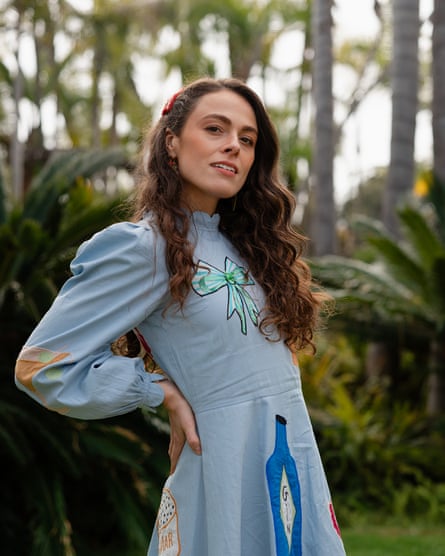
“I’m not changing anything about my business, no matter what the government says,” Michelle said. “We elected a president who doesn’t support this type of marriage, or at the very least doesn’t care enough to try to protect it.”
She is seeing queer couples accelerate their wedding plans in fear of Trump and the supreme court overturning 2015’s ruling on Obergefell v Hodges, which recognized same-sex marriages. Michelle currently offers accessible pricing for queer couples.
“[Pride] is a good time to remind wedding vendors to stop advertising to only brides or using very gendered language, or assuming that every couple has a bride and a groom,” she said. “Performative allyship is really dangerous, and for businesses June can be a time of greater reflection on how they can be more clear and inclusive.”
According to Michelle, there is an emerging trend for queer couples to distinguish legal marriage from a wedding ceremony. Many of her clients explained that they are registering their marriage now out of an “abundance of caution” because they don’t feel like “their rights will be protected”, she said.
“It’s a privilege when you’re able to celebrate instead of protest and queerness is always rebellious,” she said. “You protest when things aren’t welcoming to begin with and you celebrate when you’re able to but I think also you have to do both. Otherwise, it becomes quite sad.”
After noticing an uptick in demand, she created an LGBTQ+ wedding directory of more than 130 businesses. She didn’t stop there: Michelle then teamed up with five other vendors to throw a queer mass wedding ball for six lucky couples on 5 January.
“We don’t really feel like celebrating. We feel like crying and we feel helpless and all we’re trying to do is get married,” Michelle said. “We just wanted to throw a party. This event is coming out of the time of fear and uncertainty, but that’s always been the queer story.”
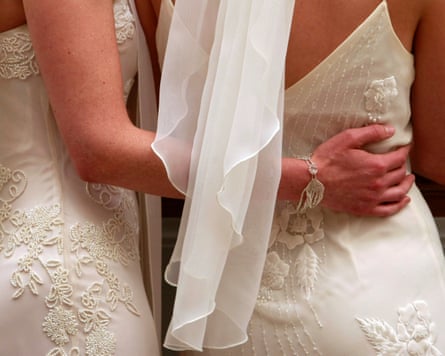
The team behind the wedding ball are “open to the idea” of hosting a similar event in other states, particularly in Republican-led ones.
Nine states are urging the supreme court to reverse Obergefell v Hodges.
“We’re scared, and I don’t put that lightly,” Michelle said.
We will survive
In Decatur, Georgia, Charis Books & More aim to alleviate the fears the queer and trans community are experiencing.
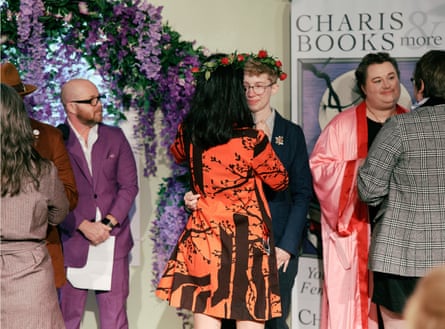
“My job is to support young people and those with children and to say: ‘Look, we have spent most of our history as queer and trans people as outlaws and we can be outlaws again. But, we will survive, we are very creative and we’ll figure out how to get through this time,’” said Errol Anderson, the executive director of Charis Books & More’s non-profit arm, Charis Circle.
Charis Circle hosts events like story time and offers support groups, especially for the trans community. They have four support groups for trans and gender non-conforming individuals across ages. Georgians in less welcoming parts of the state see Charis “as a beacon”, according to Anderson.
“We’re seeing these particularly aggressive attacks on trans people for the past couple years now being mirrored in national legislation and it’s very scary,” Anderson said. “A lot of people right now feel very hopeless, but we need to remember we do actually have a lot of power to speak up for what we believe in and our voices do matter.”
Joy as resistance
New York’s 34-year-old queer bar Henrietta Hudson is returning to its roots as a political activist space, especially as Pride approaches.
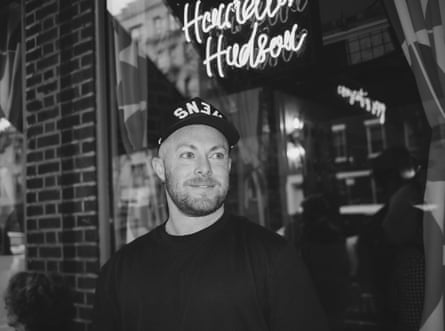
“Acutely since the inauguration, but really since the election, there’s a different tone to how people come to [the bar]. It feels more necessary,” Hutch Hutchinson said. “People are craving to be around other queer people and to be in a safer space. We have to buckle down for the family we have here.”
Hutchinson, who uses he/they pronouns, is the director of operations at Henrietta Hudson. He said Pride is already in the air as the bar has seen a surge in energy and purpose.
“[Pride] often does feel like a protest and we call our Pride as occupying Hudson, a very definitive statement on us taking up space in the West Village,” he said. “The general feeling at Henrietta Hudson is that we’ve just become more political. This place has been through so many eras of queer resistance and uprising. We are relighting that fire.”
They lend their bar to vetted non-profits and local grassroots organizations for events giving back to the LGBTQ+ community, such as a Pride Week fundraiser benefiting the BTFA Collective for Black trans femme artists and the annual NYC Dyke March.
Hutchinson explained that the bar will always take explicit stances to protect and support the community. It posted a message on their Instagram, calling out the “immoral”, “dangerous” and “unlawful” attacks by Trump’s administration.
“We talk, as a [staff] about, what does resistance look like? Sure, resistance is showing up to rallies and supporting the ACLU, learning your rights, marching and protesting,” he added. “But it’s so important for us to dance and to see each other smile and laugh and sing. Our joy is resistance.”
Being visible is more important
Down in St Louis, Missouri, art collective Swan Meadow plans to be a safe third space for the community where members can “simply exist as who they are”. Partners Fern and Mellody Meadow, who both use they/them pronouns, emptied their savings to open the collective last fall after a close presidential election.
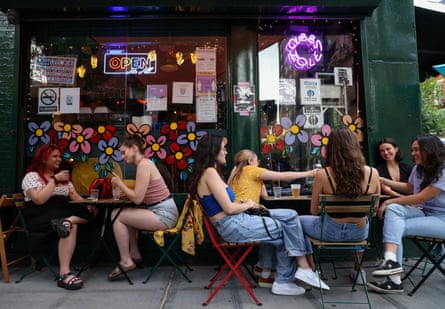
“We are always trying to craft events and spaces for people to come to and to sit with complicated emotions and thoughts and to talk to people about them,” Fern said. “It can be isolating and so frustrating to know that things are wrong that are outside of our control, but when you come together as a community, so much positive change can happen.”
They open their workshop multiple times a month for free community-focused events such as “crafternoons”. Some events act as fundraisers for local mutual aid organizations like the Community Closet, which distributes free household, cleaning and hygiene items. The collective also offers branding, photography and printing services.
The Meadows envision Swan Meadow taking on a larger role in political advocacy for the community.
“As pushback becomes more prevalent and discrimination becomes more normal, being visible is more important than ever,” Mellody said. “I’m tired of living through history.”

 German (DE)
German (DE)  English (US)
English (US)  Spanish (ES)
Spanish (ES)  French (FR)
French (FR)  Hindi (IN)
Hindi (IN)  Italian (IT)
Italian (IT)  Russian (RU)
Russian (RU)  1 day ago
1 day ago








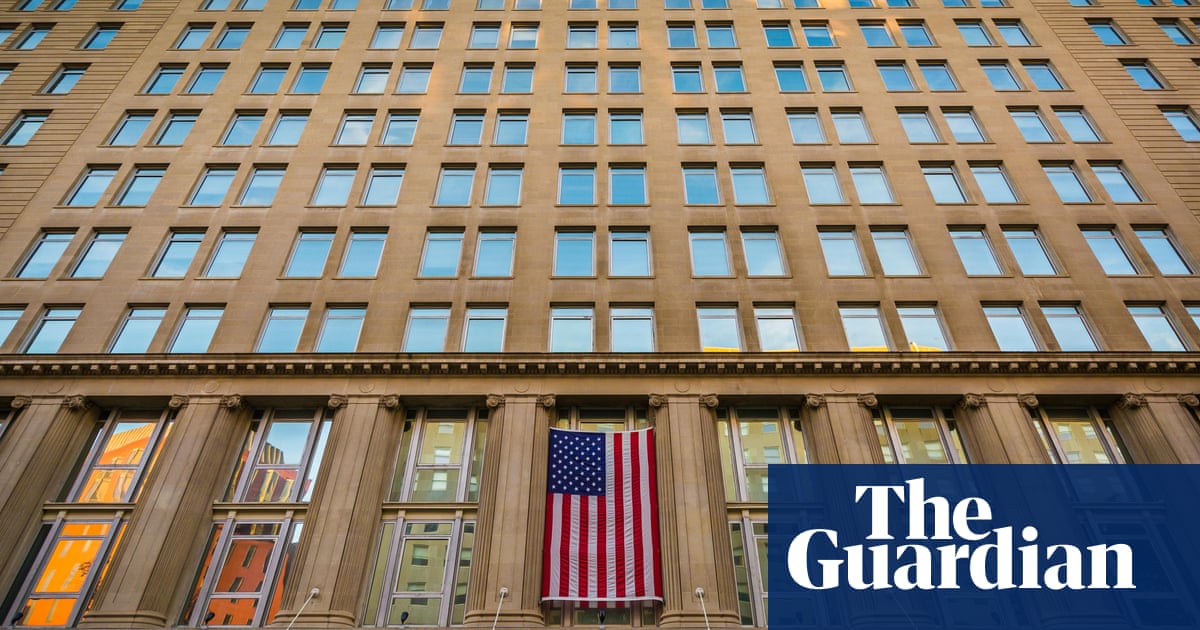




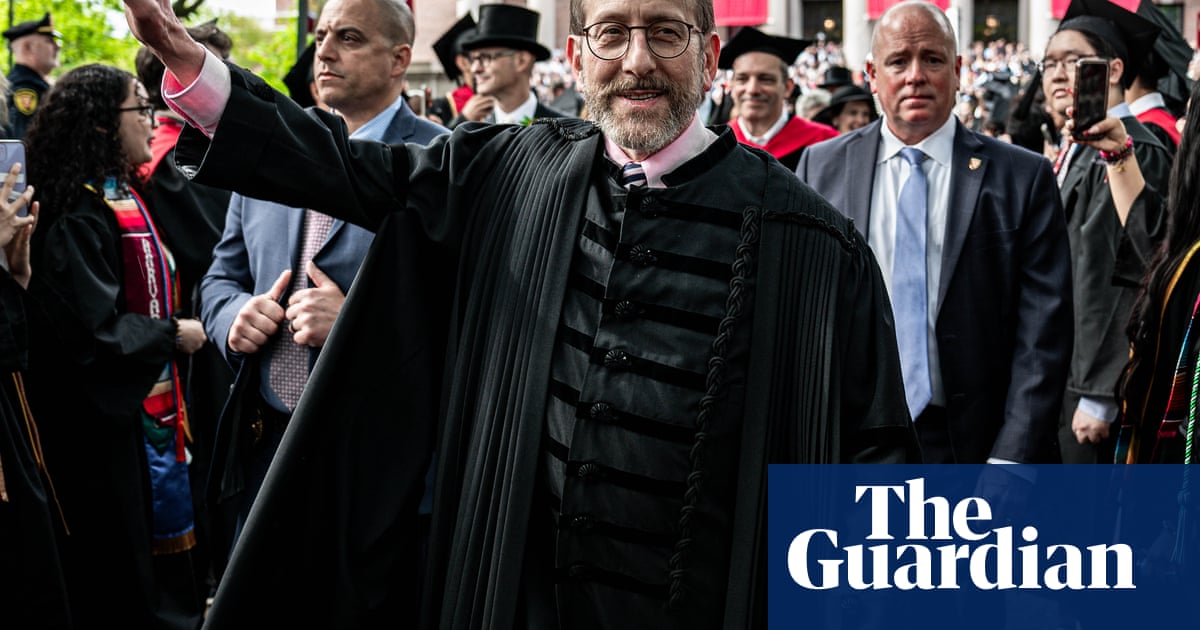



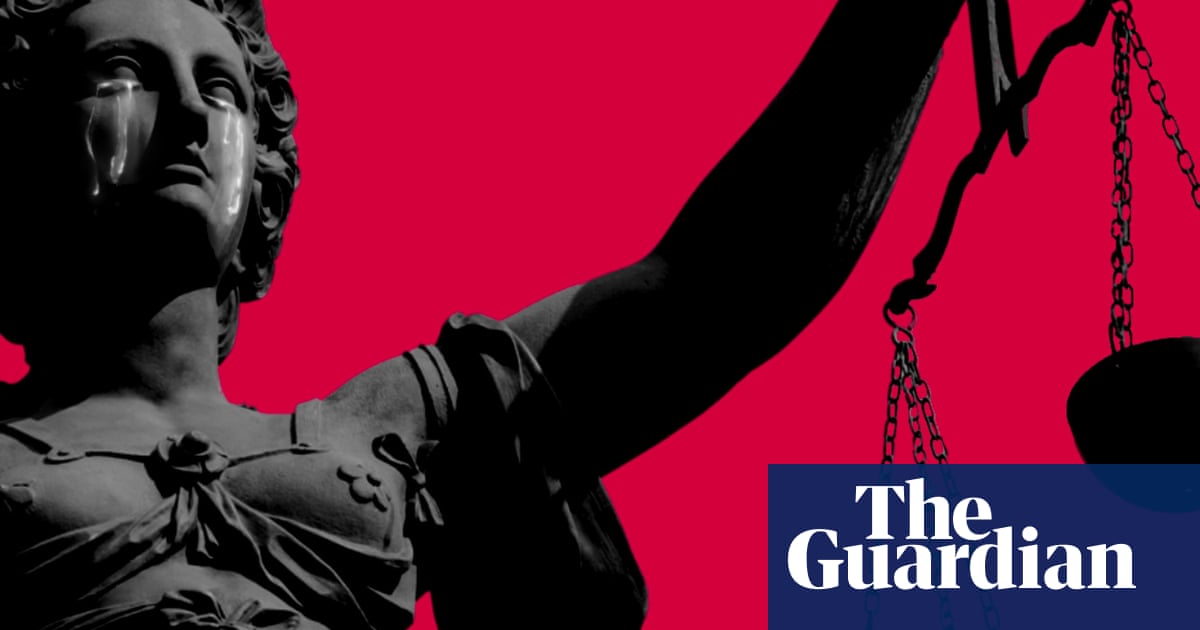






Comments